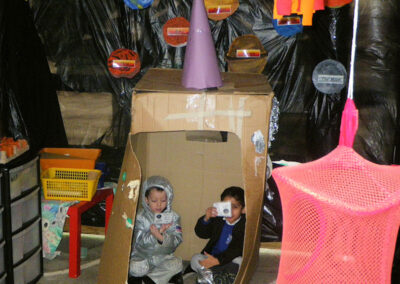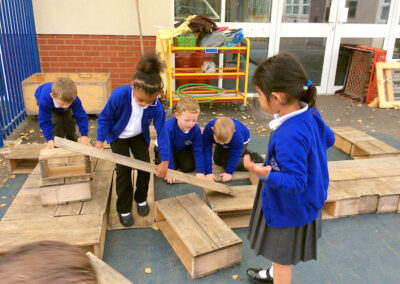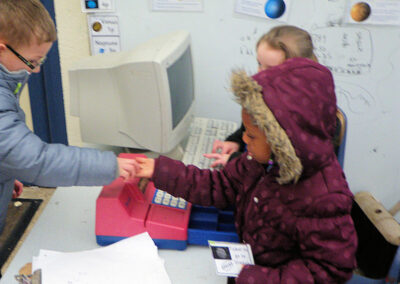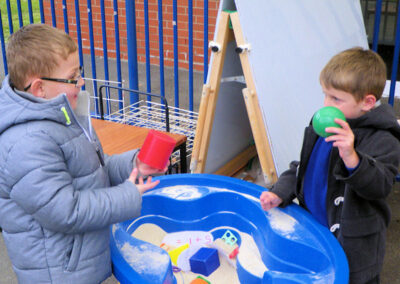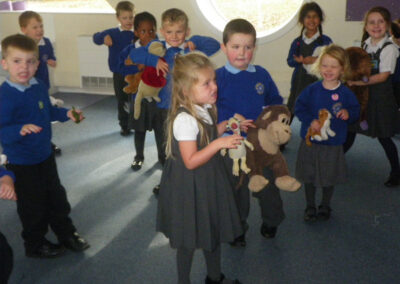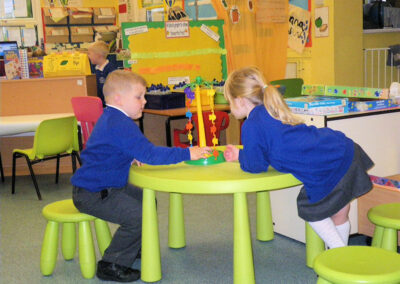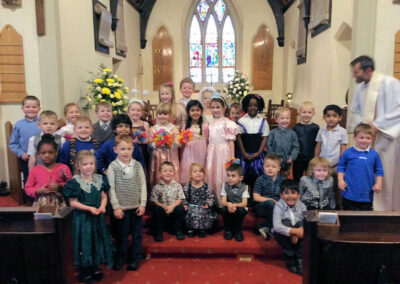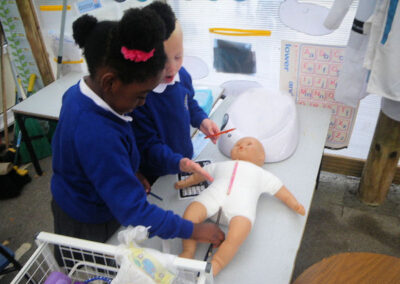Reception
Welcome to the Reception Class.
In our teaching team we currently have Ms Jackson, Mrs Spencer, Mrs Banks, Mrs Edwards and Mrs White.
We have close links with our Private Nursery Provider and share the same outside classroom. Nursery and Reception form the Early Years Foundation Stage.
Our learning environment is organised into the different areas of learning under the new revised Early Learning Areas 2012.
There are three prime areas of learning:
- Physical Development with a focus on: Moving and Handling and Health and Self-care.
- Personal, Social and Emotional Development with a focus on: Self-confidence and Self-awareness, Managing Feelings and Behaviour, Making Relationships.
- Communication and Language with a focus on: Listening and Attention, Understanding and Speaking.
There are also four specific areas of learning:
- Literacy: Reading and writing.
- Mathematics: Numbers and shape, space and measures.
- Expressive Art and Design: Exploring and using media and materials, and Being imaginative.
- Understanding the World: People and communities, the World and Technology.
Throughout the year there will be ongoing observations assessing your child against the following criteria:
- Playing and Exploring – finding out and exploring; Engaging – playing with what they know – being willing to ‘have a go’.
- Active Learning – being involved and concentrating; Motivation – keeping on trying – enjoying achieving what they set out to do.
- Creating and Thinking – having their own ideas; Critically – making links; Thinking – choosing ways to do things.
EYFS Curriculum
Intent
It is our intention to provide, within the context of our Vision Statement, a broadly enriched, rounded and stimulating learning environment where children can work with adults and peers in a climate of mutual respect to develop;
- Confidence in their ability to learn.
- The social skills necessary to learn.
- The emotional capabilities to enable them to understand their feelings and to solve problems.
- A strong sense of self.
We aim to provide children, with a well-structured, safe, active learning environment both indoors and outdoors. Through the children’s interests and with reference to the Development Matters document, we provide a curriculum that encourages curiosity in a safe and nurturing environment. To strengthen this further, strong relationships are formed with parents through clear communication and a firm foundation of trust. This will enable the children to develop the skills, attitudes and understanding that will form the basis of lifelong learning and encourage them to become useful, active members of a diverse and constantly changing society.
Our intention is EYFS is an integral part of the wider school; we join in with the school community which in turn provides a smooth transition to KS1.
Implementation
Our curriculum is delivered through a mixture of termly topics and children’s interest. Details of topics can be accessed through the reception and nursery class areas on the website.
We greatly value the acquisition of knowledge and development of skills and have developed our own curriculum to reflect this. Parents will have access to knowledge organisers at the start of each topic to support their child’s vocabulary and understanding. Parents will also be able to contribute to this by adding the interests of their child. Additionally, through out the year we organise exciting activities, outings and visits/visitors to enhance the children’s learning.
Learning through play is at the core of our ethos enhanced through skilled practitioners through playful learning. We use the environment to ensure the children’s needs are met through continuous provision, enhanced provision and following individual interests. Staff teach learning objectives through whole class, small group teaching and 1-1 sessions within the environment. Our large outdoor area allows us to develop skills through a range of experiences such as Forest School, allotment area, and variety of play pitches.
Formative assessment takes place within every session and enables staff to scaffold and challenge each child’s learning. Moving children’s learning on may be planned using formative and summative assessment or instantaneous if appropriate. Although Early Years has a separate curriculum we are keen to make sure our children are prepared for the next chapter in their school life.
Impact
The broad and balanced curriculum design ensures that the needs of individual children including EAL, SEND and disadvantaged, and small groups of children can be met within the environment with high quality first teaching supported by targeted interventions where appropriate. Nursery follow focus children each week which enables staff to track process and identify and close gaps in learning. By following these approaches positive pupil outcomes are achieved.
The impact of our curriculum is measured through termly tracking in school and Early Learning Goals which allow us to measure outcomes against all schools nationally. We have developed Milestone descriptors from our new curriculum and ELG goals to assess children’s progress from 0-5. We use this data to measure the impact of our curriculum and decide next steps to enhance the children’s progress.
We endeavour for pupils to be Reception and then KS1 not only academically but as independent, well rounded individuals who embody our values and carry with them the knowledge, skills and attitudes which will make them lifelong learners and valuable future citizens.
Our Learning
Find out what we are learning in Reception:
- Reception Long Term Plan
- Reception Reading Spine
- Welcome to Reception Booklet – information for new Reception parents.


